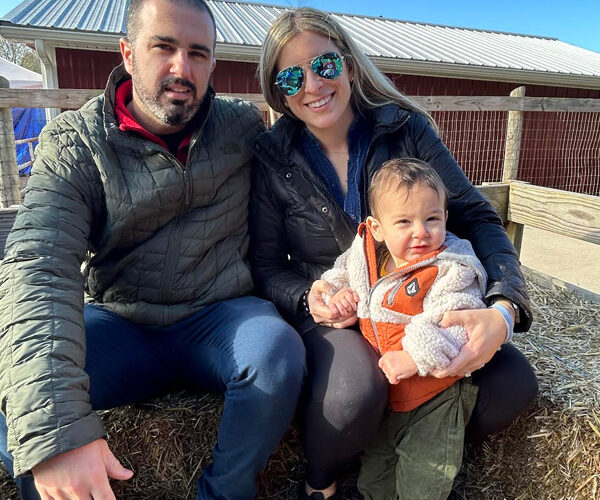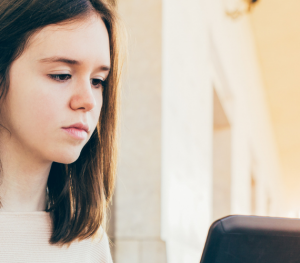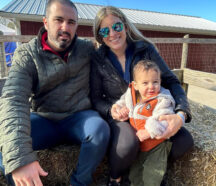By Stacey Meadows, MSW, LCSW-C
Manager, Therapy Services
Jewish Community Services
Talking to Our Children
about Coronavirus
In a modern age of constant contact and sensationalized news broadcasting, we, as parents, not only have to find ways to deal with our own feelings about scary news stories, but also the inevitability of our children’s encounters with them. The recent outbreak of COVID-19 (also known as the Coronavirus), is no exception.
COVID-19 is quickly threatening to significantly impact our day-to-day routines and decisions within our families and homes. So, how do we prepare our families and our children for these real and potential changes?
The answer to this question is complicated. If you are like me, you find yourself involuntarily inundated with news headlines that toggle between hysteria and dissociation. You will feel torn between the choice of becoming a “doomsday prepper” and taking a “worry when there’s reason to worry” approach.
In a situation where there are no clear right answers, anxiety thrives. This is why we absolutely must reflect on our own feelings before we begin to untangle our children’s feelings.
By processing your feelings first, you will be better prepared to respond to the questions and feelings that your child is experiencing, and to make the decisions that will best protect your family. And, you’ll be better prepared to communicate plans and any potential changes.
How to Prepare for the Conversation
Whether you say it or not, if you are highly anxious, your kids know it! Children take their emotional cues from their trusted adults. This means that your ability to manage your own anxiety will have significant implications for your children’s ability to do the same.
Taking care of ourselves is equivalent to the airline industry’s request that we put on our own oxygen mask first so that that we can then competently help our kids put on theirs. This might mean limiting our access to media coverage (you know those news pop ups on your phone? You can turn those off!)
It might look like using discernment when choosing the news outlet(s) you do rely on for information. You may want to consider dedicating an isolated portion of the day (10-15 minutes, perhaps) to reading up on current information. You may also want to consider seeking guidance or counsel yourself around these difficult feelings.
Now that you’ve started reflecting on, and better managing, your own worry, it’s time to move our attention to the kids. Here’s the good news – just about everything we just reviewed about your own self care is translatable to them!
Talking to Your Children
They also don’t need 24/7 news updates on their phones or the living room TV. They need resources, like you, to give them only the facts they need to know. Kids need a person with whom they can safely share their feelings and worries, who will prepare them for potential changes related to the virus and will offer whatever reassurance that can be reasonably offered.
The best way to start talking to our kids about any current event, is to ask them what they might already know. What have they seen or heard, both online or through peers? How are they feeling about this information, and what questions do they already have about it?
Answer their questions (age appropriately), and clear up misunderstandings without using excessive detail. Help your child to identify feelings like fear or anxiety. Let them know that these feelings are normal, and perhaps, that you have them too.
When talking with your children in a group, it’s important that you speak using language that is on the developmental level of the youngest child in the audience, saving more grown-up discussions for later conversations with the older kids.
Younger children, like preschoolers may be blissfully unaware of what has occurred in the world around them, even after they have been told. The younger the child, the less information they’ll need from you. Elementary aged kids may benefit from basic facts in broad strokes. Even if they ask for more information, generally what they are really asking is, “am I safe,” and “are you safe.”
As children grow older, they are better able to understand the context of events like these, and often require more detailed information. Middle schoolers straddle the line between their younger and older counterparts – they often seek more information, though still share the primary need of feeling safe and protected.
By high school, our kids are likely to seek out their own information if we can’t provide it, so we might find conversations about their feelings and the family’s plan to address this issue more valuable than information sharing.
By taking care of ourselves we are better prepared to make decisions about how and when we talk to our kids, and to make the plans we need to make our family feel prepared for any potential changes to our lives as a result of this virus.
Additional resource:
Based on information from medical and behavioral health professionals at University of Illinois School of Social Work, LSU Health Sciences Center and National Institute of Mental Health, National Public Radio (NPR) created a comic book for kids that explains the virus.
Subscribe to our newsletter
The Associated is a home for everyone in the Baltimore Jewish community. We offer several email lists to help people find a community, engage with their peers and support Jewish journeys around the world.
Join Our Mailing ListAdd Impact to Your Inbox
Sign up for our newsletter
Subscribe to our newsletter
The Associated is a home for everyone in the Baltimore Jewish community. We offer several email lists to help people find a community, engage with their peers and support Jewish journeys around the world.
Join Our Mailing List









 Please Wait while we loading your video.
Please Wait while we loading your video.